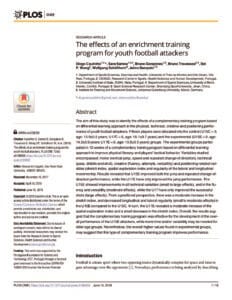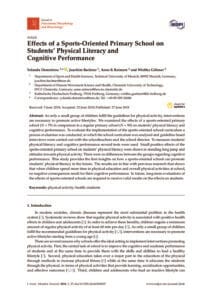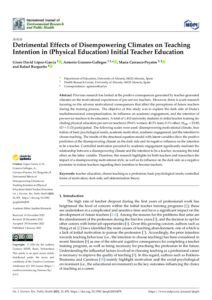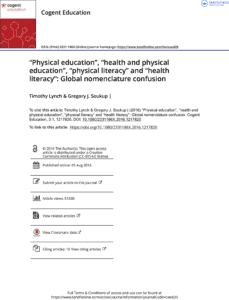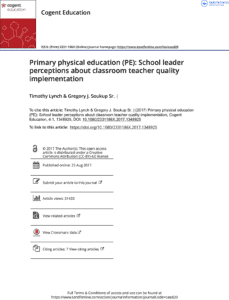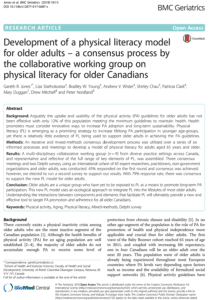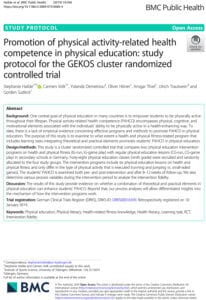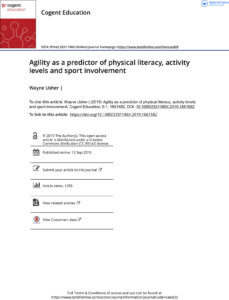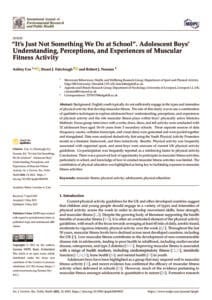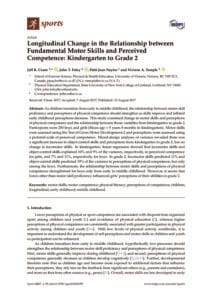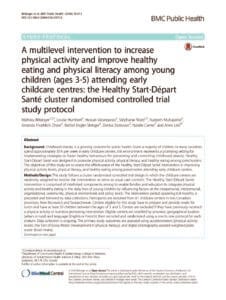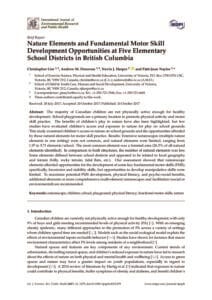-
The effects of an enrichment training program for youth football attackers
Abstract The aim of this study was to identify the effects of a complementary training program based on differential learning approach in the physical, technical,… -
Effects of a Sports-Oriented Primary School on Students’ Physical Literacy and Cognitive Performance
Abstract As only a small group of children fulfil the guidelines for physical activity, interventions are necessary to promote active lifestyles. We examined the effects… -
Detrimental Effects of Disempowering Climates on Teaching Intention in (Physical Education) Initial Teacher Education
Abstract Previous research has looked at the positive consequences generated by teacher-generated climates on the motivational experiences of pre-service teachers. However, there is scant research… -
“Physical education”, “health and physical education”, “physical literacy” and “health literacy”: Global nomenclature confusion
Abstract: The title “physical education” (PE) is the traditional taxonomy used to represent the education discipline. Health and physical education (HPE) is regarded to be… -
Primary physical education (PE): School leader perceptions about classroom teacher quality implementation
Abstract Quality physical education (QPE) in primary school optimises children’s well-being. However, international research indicates that the preparation of classroom teachers is impeded by systemic… -
Development of a physical literacy model for older adults – a consensus process by the collaborative working group on physical literacy for older Canadians
Background Arguably the uptake and usability of the physical activity (PA) guidelines for older adults has not been effective with only 12% of this population… -
Promotion of physical activity-related health competence (PAHCO) in physical education: study protocol for the GEKOS cluster randomized controlled trial
Background One central goal of physical education in many countries is to empower students to be physically active throughout their lifespan. Physical activity-related health competence… -
Agility as a predictor of physical literacy, activity levels and sport involvement
Objective Given the increasing importance being placed on levels of youths’ physical literacy (PL), physical activity (PA) and sport involvement (SI), it would seem plausible… -
“It’s Just Not Something We Do at School”. Adolescent Boys’ Understanding, Perceptions, and Experiences of Muscular Fitness Activity
Background English youth typically do not sufficiently engage in the types and intensities of physical activity that develop muscular fitness. The aim of this study… -
Longitudinal Change in the Relationship between Fundamental Motor Skills and Perceived Competence: Kindergarten to Grade 2
Abstract As children transition from early to middle childhood, the relationship between motor skill proficiency and perceptions of physical competence should strengthen as skills improve… -
A multilevel intervention to increase physical activity and improve healthy eating and physical literacy among young children (ages 3-5) attending early childcare centres: the Healthy Start-Départ Santé cluster randomised controlled trial study protocol
Background Childhood obesity is a growing concern for public health. Given a majority of children in many countries spend approximately 30 h per week in… -
Nature Elements and Fundamental Motor Skill Development Opportunities at Five Elementary School Districts in British Columbia
Abstract The majority of Canadian children are not physically active enough for healthy development. School playgrounds are a primary location to promote physical activity and…


